Laura J. Kruskall, PhD, RDN, CSSD, LD, FACSM, FAND, ACSM-EP |
Oct.
30, 2019

An exercise professional can and should discuss nutrition with their patients and clients.
This information, however, should be limited to general, non-medical nutrition information that is accurate and delivered to healthy individuals.
Examples of this include:
- Principles of healthy food shopping and preparation
- Foods to be included in the normal daily diet of HEALTHY individuals
- Recommended amounts of the essential nutrients (dietary reference intakes) for HEALTHY individuals
- The effects of deficiencies or excesses of nutrients
- Specific foods or supplements that are sources of essential nutrients
- Providing information about food guidance systems (e.g., USDA Dietary Guidelines, food labels and MyPlate)
- The actions of nutrients on the body
- The basic roles of carbohydrates, proteins, fats, vitamins, minerals and water
- Giving statistical information about the relationship between chronic disease and the excesses or deficiencies of certain nutrients
- Following ACSM guidelines for proper hydration in HEALTHY individuals
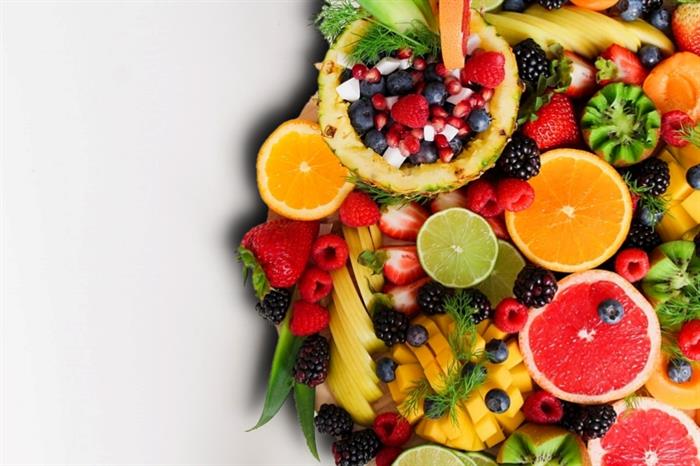
Additional information on this topic can be found in a related post: Nutrition and the Exercise Professional’s Scope of Practice
1. Should I Consume Sports Drinks or Does Water Work Just as Well?
Sports drinks contain carbohydrate and electrolytes that are useful in maintaining water and energy balance. Studies of endurance athletes, athletes in stop-and-go sports and athletes in power sports all show that consumption of sports drinks during practice and competition does a better job of enhancing athletic performance than water alone.
2. Should I Skip Lunch If I’m Trying to Lower My Body Fat Level?
Skipping meals is one of the biggest reasons people have high body fat levels. If you are trying to lose body fat, your goal should be to maintain blood sugar levels through the consumption of small, frequent meals. Declines in blood sugar will trigger feelings of hunger which often lead to overeating.
3. Should I Eat or Drink Anything during Exercise?
Maintaining a constant flow of carbohydrates to muscles and maintaining blood sugar during competition is an important strategy for success. Your clients should consider sipping on a sports beverage (approximately ½ to 1 cup every 15-20 minutes) during competition to achieve this result. If there are long breaks during an exercise workout, then consuming a carbohydrate snack (e.g., crackers, bread) might be acceptable provided that fluid is also consumed.
4. I’m a Profuse Sweater and Occasionally Get Serious Cramps. Is There Anything I Should Be Doing to Avoid this Problem?
Cramps are typically associated with dehydration and sodium loss. Try making certain that sufficient sodium-containing fluids (i.e., sports beverages) are consumed during practice and competition. Unless you have a history of high blood pressure, you should also consider adding a small amount of salt to the food you eat, following with plenty of water.
5. How Can I Tell if I’m Dehydrated?
The easiest way to tell is that your urine will be dark, and there won’t be very much of it. Light-colored or clear urine is a sign of adequate hydration, whereas dark urine suggests dehydration. It takes time to rehydrate, so avoiding dehydration is the appropriate strategy.
These FAQs are based on content from chapter 6, Nutrition and Human Performance of ACSM’s Resources for the Personal Trainer, 5th edition
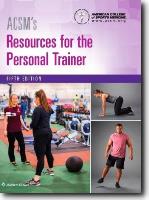
Additional Resources
Author: 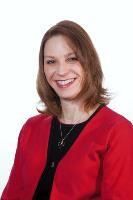
Laura J. Kruskall, PhD, RDN, CSSD, LD, FACSM, FAND, ACSM-EP
Dr. Kruskall is an Associate Professor at University of Nevada, Las Vegas (UNLV) and is the Director of the Dietetic Internship & the UNLV Nutrition Center. Her areas of expertise are sports nutrition, weight management and medical nutrition therapy. Her research interests include the effects of nutrition or exercise intervention on body composition and energy metabolism. In addition to her duties at the university, Dr. Kruskall is a member of the Editorial Board for ACSM’s Health & Fitness Journal®, is an ACSM Certified Exercise Physiologist, and is a nutrition consultant for Canyon Ranch Spaclub and Cirque du Soleil in Las Vegas.
Read More Popular Nutrition Content
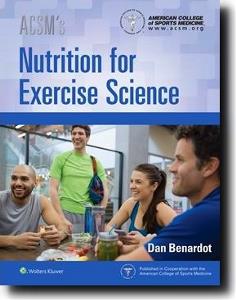
Free Sample Download - ACSM's Nutrition for Exercise Science
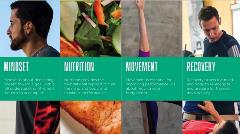
Free Nutrition Course - Integrating Nutrition Into Training
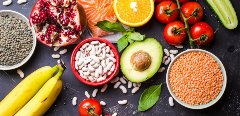
Sports Nutrition Myths Busted
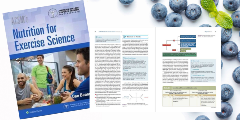
10 Things You Need to Know About Sports Nutrition